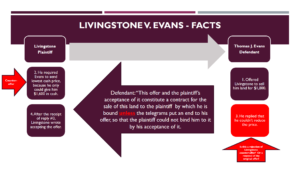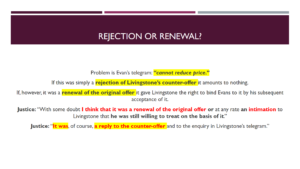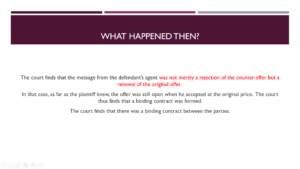Court of Appeals of Indiana.
Randi GERSHIN, Sally Kogod, Erica Burten, Joanna Aronson, Betsey Abramson and Darryl Sherman, Appellants-Defendants, v. Sheree DEMMING, Appellee-Plaintiff.
No. 53A01-9704-CV-118.
Decided: October 08, 1997
Paula Gordon White, Student Legal Services, Bloomington, for Appellants-Defendants. Thomas A. Berry, Thomas A. Berry & Associates, Bloomington, for Appellee-Plaintiff.
OPINION
STATEMENT OF THE CASE
Sheree Demming (“Landlord”) entered into a one-year lease with six tenants. The tenants notified Landlord of their intent to abandon the premises before the lease term had ended and then failed to pay the remaining rent. Landlord filed suit. Two of the tenants, Gershin and Kogod, settled with Landlord and were dismissed from the action.1 After a bench trial, the court awarded Landlord $3,250.00 in unpaid rent, $3,019.08 in other damages, $5,837.00 in late fees and $258.60 in expenses. With a credit for the $4,182.22 settlement and a $1,300.00 security deposit, the trial court entered a judgment of $6,882.46 in damages plus $4,909.40 in attorney fees and court costs against the four remaining tenants, Burten, Aronson, Abramson and Sherman (“Tenants”).2 Tenants now appeal from the award of late fees.
We affirm in part, reverse in part and remand.
ISSUES
The parties present several issues for our review which we restate and consolidate as:
1. Whether the trial court erred when it awarded a per diem late fee for the period between expiration of the lease term and the date of judgment.
2. Whether the late fee provision is enforceable as liquidated damages.
3. Whether Landlord is entitled to appellate attorney fees.
FACTS
On January 26, 1994, Landlord and Tenants entered into a lease for a one-year term from August 15, 1994, to August 14, 1995. Tenants agreed to pay rent of $1,300.00 per month. The agreement also included a provision for the payment of late fees which stated:
[Tenants are] to pay all monthly installments of rent promptly when due; all such installments received after the due date being subject to a late charge of one percent 1% of monthly rent due, per day, including Saturday and Sunday. All checks returned to us for any reason will be subject to a $15.00 service charge for returned check. Additionally, a check not honored is considered non-payment in regard to late charges.
Supplemental Record at 180. Tenants provided a $1,300.00 security deposit and five guaranties from their parents.
In May of 1995, Tenants notified Landlord of their intent to abandon the premises. Tenants moved from the house and did not tender the rent payments that were due in June, July and August of 1995. Landlord attempted to mitigate damages by subleasing the premises during the summer months, but she was unable to locate anyone willing to assume the remaining lease term. Landlord had already rented the premises for a new term beginning August 15, 1995.
Landlord filed suit to collect unpaid rent, late fees, damages and attorney fees. Two tenants, Gershin and Kogod, entered into a settlement with Landlord in which they agreed to pay $4,182.22, and Landlord dismissed them and their guarantors as defendants. At trial on April 12, 1996, Tenants admitted their breach of the lease but disputed Landlord’s damage claims, and trial was held on damages. After trial Landlord dismissed the remaining guarantors without prejudice. On August 23, 1996, the court entered a judgment against Tenants which totaled $11,791.86 plus court costs.
DISCUSSION AND DECISION
Liquidated Damages
We are asked to decide whether the late fee provision in the lease is a valid liquidated damages clause or an unenforceable penalty. A typical liquidated damages provision provides for the forfeiture of a stated sum of money upon breach without proof of damages. General Bargain Ctr. v. American Alarm Co., 430 N.E.2d 407, 411 (Ind.Ct.App.1982). Liquidated damages provisions are generally enforceable where the nature of the agreement is such that when a breach occurs the resulting damages would be uncertain and difficult to ascertain. Id. However, the stipulated sum will not be allowed as liquidated damages unless it may fairly be allowed as compensation for the breach. Sterne v. Fletcher Am. Co., 204 Ind. 35, 50, 181 N.E. 37, 43 (1932).
We are tolerant of provisions within contracts which provide for liquidated damages. Czeck v. Van Helsland, 143 Ind.App. 460, 462, 241 N.E.2d 272, 274 (1968). Where the sum stipulated in the agreement is not greatly disproportionate to the loss likely to occur, the provision will be accepted as a liquidated damages clause and not as a penalty, Nylen v. Park Doral Apartments, 535 N.E.2d 178, 184 (Ind.Ct.App.1989), trans. denied, but where the sum sought to be fixed as liquidated damages is grossly disproportionate to the loss which may result from the breach, the courts will treat the sum as a penalty rather than as liquidated damages. Czeck, 143 Ind.App. at 463, 241 N.E.2d at 274 (citing Beiser v. Kerr, 107 Ind.App. 1, 8, 20 N.E.2d 666, 669 (1939)). In determining whether a stipulated sum payable on a breach of contract constitutes liquidated damages or a penalty, the facts, the intention of the parties and the reasonableness of the stipulation under the circumstances of the case are all to be considered. Nylen, 535 N.E.2d at 184. The distinction between a penalty provision and one for liquidated damages is that a penalty is imposed to secure performance of the contract and liquidated damages are to be paid in lieu of performance. 9 I.L.E. Liquidated and Exemplary Damages § 101 at 256. Notwithstanding a plethora of abstract tests and criteria for the determination of whether a provision is one for a penalty or liquidated damages, there are no hard and fast guidelines to follow. Zalewski v. Simpson, 435 N.E.2d 74, 77 (Ind.Ct.App.1982) (citing Skendzel v. Marshall, 261 Ind. 226, 232, 233, 301 N.E.2d 641, 645 (1973), cert. denied, 415 U.S. 921, 94 S.Ct. 1421, 39 L.Ed.2d 476 (1974)). The question whether a liquidated damages clause is valid, or whether it constitutes a penalty, is a pure question of law for the court. Nylen, 535 N.E.2d at 178.
Issue One: Accrual of Late Fees Beyond the Lease Term
A valid late fee in a lease is intended to compensate the landlord for both the administrative expense and inconvenience in collecting late rent and the loss of use of rental income. Such a late fee may also coincidentally serve as an incentive for the tenant to pay rent on a timely basis. Thus, to some extent, every late fee amounts to a “penalty” for those tenants who fail to pay their rent in a timely manner. However, when a late fee provision is so substantial and burdensome as to compel compliance with the terms of the lease,3rather than to compensate the landlord for the actual damages likely to result from the breach, the provision is not compensatory but punitive and is unenforceable as a liquidated damages clause.
The trial court awarded $5,837.00 in late fees. Tenants contend that these fees are greatly disproportionate to Landlord’s actual loss due to late rental payments and, specifically, that the trial court erred when it awarded late fees from the end of the lease term to the date of judgment, a period of 374 days. They argue that late fees should run only from June 1, 1994, when Tenants first failed to pay rent on time, to August 14, 1995, the end of the lease term, a period of 75 days.
We have not previously considered whether a per diem late fee may be assessed beyond the lease term. In Nylen, although the tenants had been ejected, late fees continued to accrue for the balance of the lease term because the tenants continued to be liable for rental payments under a savings clause in the rental agreement. Nylen, 535 N.E.2d at 184. The judgment in Nylen included late fees assessed only to the end of the lease term. Also, in Gigax v. Boone Village Ltd., 656 N.E.2d 854 (Ind.Ct.App.1995), we held that the trial court erred as a matter of law when it assessed rent and late fees after termination of the lease. Id. at 860. However, our holding in Gigax is not directly on point because in that case late fees were assessed only once against each late payment and not on a per diem basis.4 Id.
Here, in contrast, the late fees were not assessed once but were assessed on the date of default and continued to accrue daily thereafter. Tenants argue that when late fees continue to accrue after the lease term has ended into the indefinite future, the amount of late fees awarded is arbitrary as it depends upon the time taken to initiate and conclude litigation, during which time late fees continue to accumulate. Thus, Tenants contend that late fees beyond the lease term penalize them for exercising their right to litigate.
Landlord counters that the late fees are fully justified in this case where the Tenants intentionally abandoned the lease and failed to pay the remaining rent without excuse. Landlord further contends that Tenants could have tolled the accrual of late fees at any time if they had paid their rent and that absent any provision to the contrary in the lease, the late fees may continue to accrue beyond the lease term until the rent has been paid or a judgment has been entered.
The question before us is whether there is any limitation on the useful life of a late fee provision in a residential lease. Whether denominated as a “late fee,” “late charge,” “late payment penalty,” “administrative fee” or equivalent term, such a provision is meant to compensate the landlord in liquidated damages for the late payment of rent. The liquidated damages provision is the remedy prescribed by agreement for the breach that occurs when a rent payment is untimely. The “late fee” which attaches to a late payment implies an expectation that the payment is forthcoming.
However, a second breach occurs where, as here, the rent is not only late but also unpaid. We cannot define the point in every case at which late payment becomes non-payment. However, we can say that late payment becomes nonpayment when, as here, the lease term ends, the tenants are no longer in possession of the premises, the rent remains unpaid, the parties no longer have a landlord-tenant relationship and the landlord has no further expectation of voluntary payment. At that point, the landlord’s damages are no longer uncertain or difficult to ascertain, and the continued assessment of liquidated damages in addition to actual damages for the same unpaid rent becomes a penalty.
Thus, we hold that after expiration of the lease term, when actual damages can be ascertained, “late fees” for late payment of rent otherwise assessable during the lease term as liquidated damages become a penalty designed to compel performance of the lease. Here, post-termination late fees of $4,862.00 were charged for the 374 days between the end of the lease term and the date of judgment. These late fees exceeded the unpaid rent by $1,612.00. Such fees were grossly disproportionate to Landlord’s actual loss from late rental payments and were manifestly unreasonable. Late fees should not have been assessed beyond expiration of the lease term. The proper remedy would have been prejudgment interest.5
Issue Two: One Percent Per Day Late Fee
The late fee provision allows for a late fee of “1% of monthly rent due, per day, including Saturday and Sunday.” Under that provision, Landlord claimed and the trial court awarded $13.00 per day in late fees.6 At that rate, the provision would allow Landlord to recover $975.00 in late fees to the end of the lease term.7 Tenants contend that this provision operates as a penalty and punishes them with an interest rate of 365 percent per year on unpaid rent, noting that such a rate far exceeds the maximum allowable rate for consumer credit transactions under the Uniform Consumer Credit Code. See Ind.Code § 24-4.5-2-201. Tenants also contend that a charge of one percent per day for delinquent rent is disproportionate to the losses actually suffered by Landlord from the breach.
Landlord counters that our opinion in Nylen v. Park Doral Apartments, 535 N.E.2d 178 (Ind.Ct.App.1989), trans. denied, requires that we uphold the late fee provision here. In Nylen, we affirmed the trial court’s decision to uphold a late fee provision which stated, “the landlord reserves the right to require a $2.00 per day, per person late fee,” which amounted to a $6.00 per day late fee, although the trial court only awarded $362.00.8 Id. at 184. The landlord in Nylen testified that a tenant’s failure to pay rent resulted in extra work for management in sending notices, preparing a weekly rent delinquency report, calling the tenant, and using and preparing additional cash journals. Id. Thus, the late fees were for the administrative cost actually incurred by the landlord as a result of the tenants’ breach.
Tenants contend that in this case Landlord failed to prove that the one percent per day late fee approximates Landlord’s actual loss from the late payment of rent. However, as we have already noted, one feature of a liquidated damages provision is the forfeiture upon breach of an agreed sum without proof of damages. General Bargain Ctr., 430 N.E.2d at 411. Here, the breach is undisputed, and certain damages are inherent in the nature of the breach.
As we have stated, the late fee is intended to compensate Landlord for the administrative expense and inconvenience associated with untimely rent, including late payment notices and additional bookkeeping, and for the loss of use of rental income. Landlords in residential leases typically have mortgage payments, real estate taxes, insurance, maintenance and other expenses required to maintain the leased property. Delinquent rent not only results in a loss of use, measured as interest, but also interrupts normal cash flow and may affect a landlord’s ability to meet its operating expenses. The severity of this interruption is a function of both the amount of rent owed and the duration that rent remains past due. The greater the amount of late rent and the longer the rent remains past due, the greater the adverse impact on the landlord’s business. Thus, a late fee based on a percentage of unpaid rent and on the duration of the delinquency corresponds directly with the magnitude of the breach.
We do not consider a one percent per day late fee to be excessive. If the rent were only a few days late, the late fee would be modest. While here the total of $975.00 in late fees might seem high, it represents 75 days of late rent. This accumulation of late fees occurred only because the tenants repudiated the lease and committed an anticipatory breach. We cannot say under the circumstances of this case that such a fee is grossly disproportionate to Landlord’s loss resulting from 75 days of delinquent rent or that the fee is an unenforceable penalty as a matter of law. Thus, we hold that the per diem late fee provision to the end of the lease term is not unreasonable.
Issue Three: Appellate Attorney fees
Landlord argues that she is entitled to appellate attorney fees based on a paragraph in the lease which provides that the Tenants are liable for the payment of Landlord’s “attorney fees.” We agree. See Nylen, 535 N.E.2d at 185 (disparity in bargaining power between landlord and tenant does not bar the award of appellate attorney fees). However, Landlord is only entitled to recover the amount of appellate attorney fees that can be attributed to that portion of the appeal upon which she has prevailed. Accordingly, we remand and direct the trial court to hear evidence and make a determination on that issue.
CONCLUSION
In sum, we conclude that the trial court erred when it assessed the late fee beyond the lease term. A late fee otherwise valid under a liquidated damages clause can only accrue until the lease term ends, at which point late payment becomes non-payment and is subject to actual damages. We further conclude that under the circumstances of this case a late fee of one percent of the monthly rent is not unreasonable and affirm on that issue. Finally, we conclude that Landlord is entitled to appellate attorney fees for that part of the appeal upon which she has prevailed. We reverse and remand for the judgment to be amended in a manner not inconsistent with this opinion.
Affirmed in part, reversed in part and remanded.
FOOTNOTES
1. Although Gershin and Kogod were dismissed in the trial court, their names appear in the caption of the record and briefs filed on appeal. All parties of record in the trial court shall be parties on appeal. Ind. Appellate Rule 2(B). However, Gershin and Kogod were unaffected by the trial court’s judgment and have no interest in this appeal. The parties should have moved to amend the caption.
2. The trial court made an arithmetic error when it calculated the damage award in its August 23, 1996, order. The court properly listed the damages and the corresponding amounts, but incorrectly computed the total amount due. The court stated that the Tenants were responsible for $3,683.38 plus attorney fees of $4,909.40, $3,199.08 less than the actual judgment. Tenants concede that they agreed to the correction of these errors at the hearing on their motion to correct error. That agreement was reduced to a final order on February 2, 1997. Thus, we conclude that the nunc pro tunc entry correcting the arithmetic error is valid. However, we agree with Tenants that the trial court’s ruling on their motion to correct error was not timely and is a nullity. See Ind.Trial Rule 53.3(A).
3. A penalty is defined as, “the sum a party agrees to pay in the event of a contract breach, but which is fixed, not as a pre-estimate of probable actual damages, but as a punishment, the threat of which is designed to prevent the breach.” Black’s Law Dictionary 1133 (6th ed. 1990).
4. The late fee provision in Gigax provided that a late fee of $.05 for each dollar of overdue rent could be charged. Gigax, 656 N.E.2d at 859 n. 1.
5. Because the unpaid rent of $3,250 was undisputed, Landlord would have been entitled to prejudgment interest at the statutory rate. It is well settled that where a claim is based upon a contract, the terms of that contract make the claim ascertainable, and the amount of the claim rests upon “mere computation,” prejudgment interest is allowable. Courtesy Enterprises, Inc. v. Richards Laboratories, 457 N.E.2d 572, 580 (Ind.Ct.App.1983); Ind.Code §§ 24-4.6-1-102 to 103. Specifically, we have held that in an action to recover rent under a written lease, when the unpaid rent can be ascertained, a landlord may recover prejudgment interest from the date rent should have been paid to the date of the verdict. Hirsch v. Merchants Nat. Bank & Trust Co. of Indiana, 166 Ind.App. 497, 506-07, 336 N.E.2d 833, 838-39 (1975). In this case, because Landlord’s loss of use of rental income was included in the late fee, Landlord’s recovery of prejudgment interest on unpaid rent would have been limited to the period from the end of the lease term to the date of judgment. However, the question of prejudgment interest was not raised by either party in the trial court or on appeal, and that issue is not before us.
6. We believe the late fee provision is ambiguous. It can also be read to mean that the late fee equals 1% of rent due, i.e., that the late fee increases as the amount of unpaid rent accumulates each month. However, Landlord interpreted the clause to mean that the late fee equals 1% of the monthly rent or a flat $13.00 per day, and judgment was entered on that basis. Our decision adopts that interpretation.
7. This sum represents the period from June 1, 1995, through August 14, 1995 (75 days x $13.00 = $975.00).
8. In Nylen, one of three tenants vacated the property and refused to pay rent beginning in February, 1987. The tenant’s former roommates continued to pay their portion of the rent in February and March. Id. On March 13, 1987, the remaining tenants vacated the premises upon court order. Id. Eventually, all three tenants were ordered to pay damages, including the balance of unpaid rent for February through July and late fees of $362.00. However, neither the trial court nor our court indicated how the specific sum of $362.00 was reached. We adduce that the trial court only charged the $2.00 per day, per person late fee against the tenant who initially breached the lease which calculates to be $362.00 (181 days of unpaid rent from February until July x $2.00).
NAJAM, Judge.
BAKER and RILEY, JJ., concur.
In: findlaw








